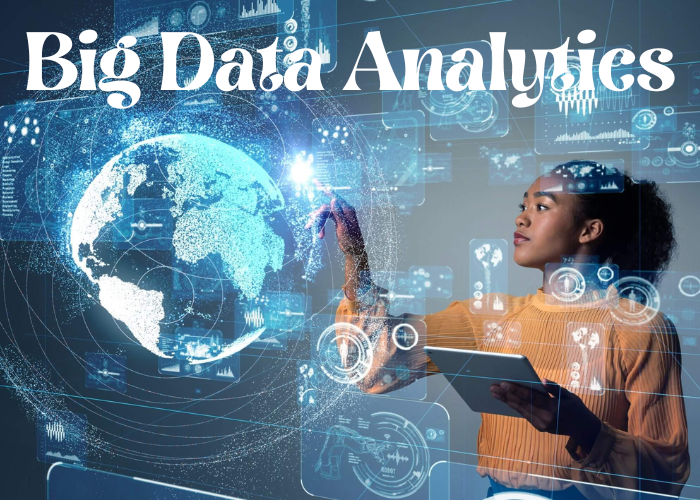In a world where data is rapidly generating and multiplying every day, businesses of all sizes are challenged to find innovative ways to leverage big data analytics. From using automation technology to interpret online customer behavior to developing predictive models based on real-time sales analyses, companies have quickly turned towards advanced data analytics capabilities to gain valuable insights that can help drive better decision making and ultimately create competitive advantages in today’s marketplace. While the potential applications of big data analytics within businesses has been well documented, what may be less explored is the potential for this type of analysis to positively shape society at large. In this blog post we will explore how powerful data analytical techniques can improve business performance while enabling government agencies and non-profit organizations alike to access more reliable insights about social issues and make better informed decisions around public policies.
What Is Big Data Analytics
Big Data Analytics is an incredibly powerful tool, as it allows for large amounts of structured and unstructured data to be analyzed to provide deep insights that help drive more informed decisions. By using applied analytics, such as natural language algorithms and predictive modeling, businesses can make use of the many sources of data available to them and gain invaluable intelligence. Big Data Analytics has become increasingly popular for its ability to save time, improve efficiency and detect hidden patterns in the data. This technology assists with identifying unknown correlations among different types of data, making it easy to generate valuable insights from streaming sensor and operational data. Most importantly, it is a critical component of progressive organizations in order to remain competitive in today’s dynamic market environment.
Why Should Businesses Be Interested in It?
Investing in information technology can provide businesses with a host of advantages, ranging from increased efficiency to enhanced customer service capabilities. By keeping up-to-date with the latest IT solutions and strategies, companies can reduce costs associated with manual management processes, streamline decision making and improve employee productivity. Additionally, businesses that employ the most current IT developments gain a competitive edge over those that do not adopt modern technology – giving them a leg up in the industry by providing customer services faster and more effectively than their competitors, as well as having comprehensive oversight on their data systems and networks.
How Can Big Data Analytics Help Businesses Gain a Competitive Edge in Their Industry?
Big data analytics offers organizations the ability to gain a comprehensive understanding of their operations, as well as those of their rivals. By harnessing the power of vast amounts of data collected from many sources, businesses can make more informed decisions that can give them an edge in the competition. Data analysis provides companies with the tools to identify trends and develop actionable insights that can lead to significant growth. By making use of financial intelligence, predictive analytics and machine learning algorithms, businesses can acquire knowledge needed to optimize marketing strategies, restructure operations, increase customer satisfaction and boost overall performance. Companies able to leverage big data analytics will be at a great advantage over their competition in today’s digital landscape.
What Are Some of the Benefits of Big Data Analytics for Society as a Whole?
Big data analytics is quickly becoming an invaluable tool for businesses and organizations seeking to gain insights into their internal operations, better understand their customers, and improve services they offer. But the applications of big data analytics reach far beyond finance and marketing: when used properly, this technology has the potential to positively transform our societies on a broader scale. By analyzing larger, more complex datasets than ever before, from transportation networks to disaster management to health epidemics, governments can identify new trends and allocate resources more precisely for maximum impact. In addition, such technologies can help boost overall efficiency in forecasting population growth or evaluating the effectiveness of public policies all of which stands to benefit society as a whole in the longer term. Successful implementation requires comprehensive training in analytics solutions, but this ultimately pays off with reduced costs and enhanced outcomes for everybody involved.\
Conclusion
The importance of data analytics is only going to grow in the coming years. As society continues to produce more and more data, those who can effectively analyze it will be in a position to transform business and society as a whole. Data analytics has the potential to revolutionize the way we live and work, and those who understand how to use it will be at the forefront of this transformation. Do you want to be a part of this transformation? Then consider pursuing a career in data analytics. With the right skills, you’ll be able to change the world.



